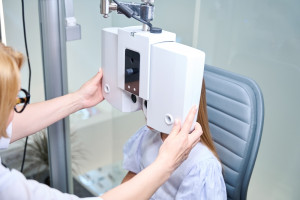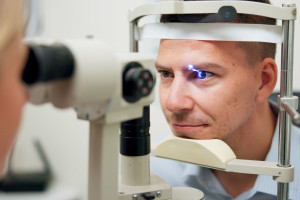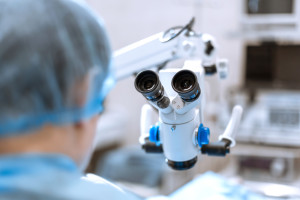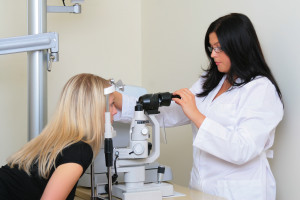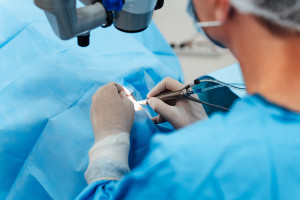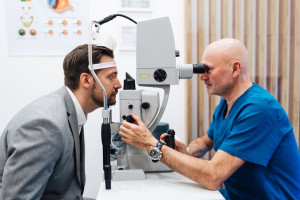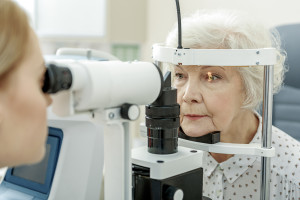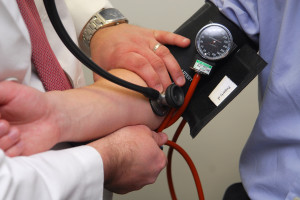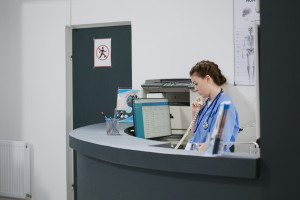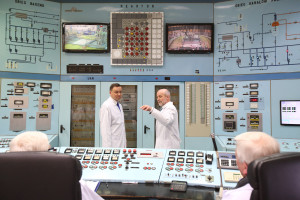Do you have hearing problems? New regulations came into force on June 14

Author: prepared by KM • Source: Rynek Zdrowia • Published: June 20, 2025 11:42 • Updated: June 20, 2025 11:42
Hearing loss is an increasingly common problem, both in children and adults. Fortunately, modern hearing aids can effectively support people struggling with hearing loss. What exactly does a hearing aid specialist do? What tasks does this specialist perform? New regulations precisely define the scope of their competences. Here's what you need to know.
- On June 14, a regulation comes into force that defines, among other things, the scope of duties of a hearing aid specialist
- The hearing aid specialist performs comprehensive hearing tests, such as pure tone audiometry, otoacoustic emissions, impedance audiometry and real ear measurements (REM)
- His/her duties include selecting and fitting hearing aids and assistive listening devices, including verifying and validating the fitting process.
- The hearing aid specialist provides audioprosthetic care after fitting the equipment, including effectiveness checks, user training, and warranty and post-warranty service.
The work of a hearing aid specialist begins with a thorough diagnosis. This is a key stage that allows for the assessment of the degree and type of hearing loss and the individual needs of the patient.
A hearing aid specialist performs :
- a detailed medical and life interview with the patient,
- assessment of the condition of the ear canal (otoscopy),
- acumetric and audiometric tests: tonal, behavioral,
- suprathreshold and speech audiometry,
- objective tests: otoacoustic emissions, impedance, ABR (auditory evoked potentials), ASSR,
- Real ear measurements (REM) to assess the ear canal and hearing aid fit.
Based on the collected data, the specialist plans further treatment and prosthetics.
Once the test results are ready, the crucial process of selecting the right hearing aids begins. The therapist analyzes the patient's needs and selects the optimal equipment for the type of hearing loss.
As part of this part of the job, the prosthetist:
- fits hearing aids and hearing aid systems,
- consults medically questionable cases with medical specialists,
- verifies camera settings (also based on children's reactions),
- performs measurements of technical parameters of devices.
Each device is individually calibrated and its settings can be modified on subsequent visits.
The hearing prosthetist also deals with otoplasty , i.e. the preparation of individual earmolds and hearing protectors.
In this part of your work:
- makes casts of the ear canal,
- designs inserts for in-ear hearing aids,
- prepares protectors for people exposed to noise,
- analyzes the quality and parameters of the manufactured elements.
Accessories tailored in this way ensure comfort, better hearing and effective protection.
But choosing a device is just the beginning of the journey. The hearing aid specialist provides ongoing care for the patient, monitoring the effects of the therapy and servicing the equipment.
The scope of this care includes:
- checking the effectiveness of prosthetics,
- instruction in the use of cameras,
- technical inspections and assessment of possible faults,
- replacement of worn parts according to manufacturers’ recommendations,
- warranty and post-warranty repairs.
The patient receives full support in the daily use of the appliance.
A hearing aid specialist not only treats, but also prevents problems. Education and prevention are important elements of their daily work.
As part of preventive measures, the prosthetist:
- provides advice on protecting hearing in noise,
- educates on hygiene and care of the hearing organ,
- supports campaigns that increase awareness of the problem of hearing loss,
- helps in obtaining subsidies for hearing aids and accessories,
- carries out orders for the supply of medical products.
Thanks to his work, many patients gain not only better hearing, but also a higher quality of life.
Copyrighted material - reprint rules are specified in the regulations .
